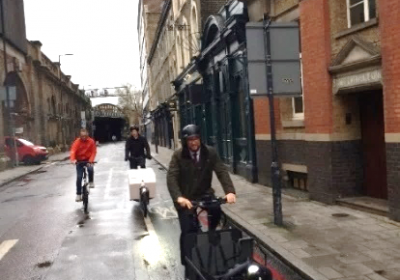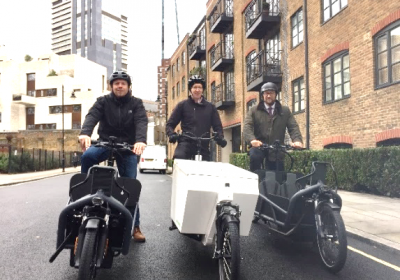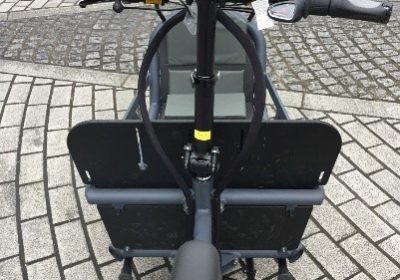Cargo bikes are bicycles that have been specifically designed to carry goods of various sizes and weights. The bicycles come in a variety of forms between two, three and four wheeled custom-built frames. Many bikes are now fitted with electric pedal assist motors to help riders manage their daily activities.
The Mayor, through TfL, is working with London boroughs, businesses and the freight and servicing industry to reduce the adverse impacts of freight and service vehicles on the street network. The aims are to reduce the number of lorries and vans entering central London in the morning peak by 10 per cent by 2026 and incorporating cargo bikes can help towards achieving this target.
Cargo bikes have been in use for more than a century, however, rarely seen in construction supply chains. Common responses include: “you can’t carry concrete or steel on that mate!” Maybe not, but there are many items that can be delivered to a site and supply big benefits in doing so, which can be seen here.
FM Conway (FMC) are undertaking Phase 2 works for the Illuminated River project. The project involves lighting up to 14 bridges on the River Thames and once complete, will be the longest public art project in the world. The plans were to deliver materials and equipment by van.
During a traffic management meeting with FMC, TfL discussed the benefits of using cargo bikes and if they could be considered to deliver materials during works. London has a plethora of cycling facilities which helps remove a vehicle off the roads. The benefits include;
- Reduced traffic congestion
- Reduced conflicts with vulnerable road users
- Reduced traffic congestion
- Reduced bus delay
- Health and the environment
- Fuel costs and driver time
- Local economy
The FMC project lead was interested to learn more and wanted to understand if cargo bikes could fit into FMC’s working practices.
TfL set up an introductory test ride using three eCargo bikes from a local store in London Bridge. This involved learning how to use the controls and how to handle a larger cycle. After a safety brief, a short cycle ride was taken on some ‘quiet’ local roads. Both FMC attendees enjoyed the cycling experience and gave positive feedback.
Next steps were to arrange a full test to assess the utility of the bike. This was to look at cargo bike capabilities and where it would fit within construction logistics as well as experiencing the real-life benefits. A strategy was agreed which included:
- TfL to investigate and supply accessible routes from the FMC yard to one of the bridges utilising the TfL cycling infrastructure map.
- TfL to source 2x cargo bikes for trial
- TfL to supply a rider risk assessment
- FMC to assess what type of materials could be delivered by cargo bike
- FMC to supply their yard to undertake an active assessment of cargo bike dynamics
- TfL and FMC to undertake an off-road test to assess loading capabilities and bike handling with loads up to 100kg.
- TfL and FMC to undertake an on-road test to assess live conditions
- Debrief and discussion on all findings
The outputs from the test were very positive and revealed numerous opportunities as well as considerations.
To find out more, click the link below.
Did you find this article helpful?
Please rate this article

Loading...









